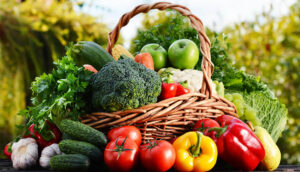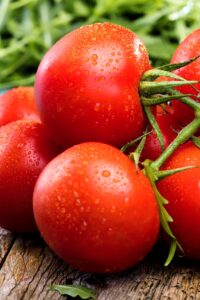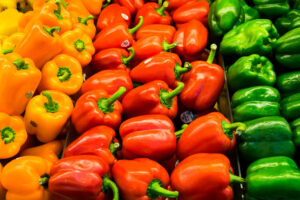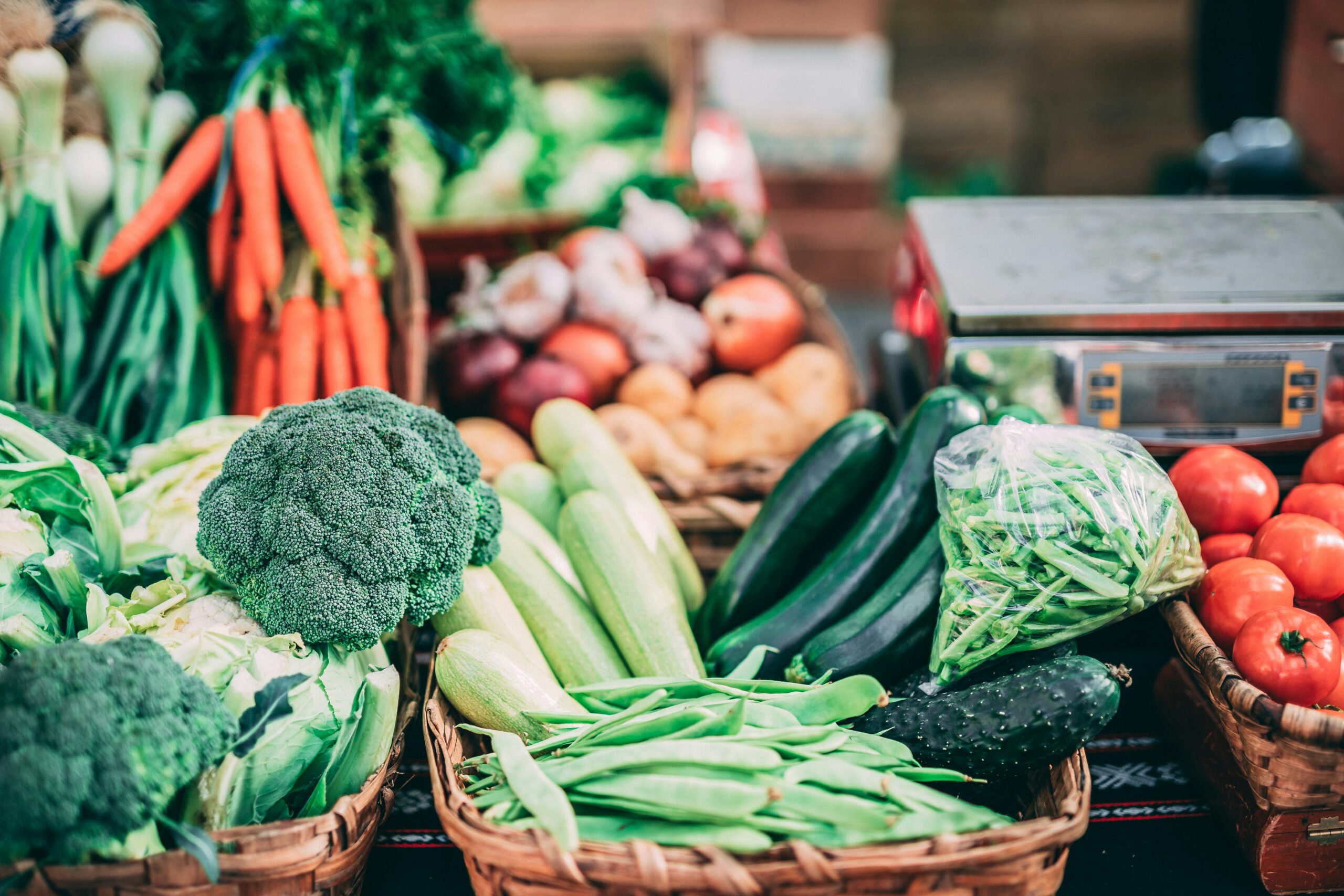South Africa boasts a rich and diverse landscape with a variety of climates, from the temperate shores of the Western Cape to the sun-soaked expanses of Limpopo. Within this diverse terrain, which includes fertile valleys and arid plains, lies a world of opportunity for vegetable cultivation. Whether you’re an experienced farmer, an avid gardener, or simply someone with a passion for growing your own food, the idea of cultivating vegetables can be both fulfilling and empowering.

In this guide, we explore the top vegetables suited for planting across South Africa’s provinces, highlighting their adaptability, nutritional value, and cultivation tips. From the resilient tomato to the unassuming carrot, each vegetable adds its own unique flavor and character to South Africa’s vibrant agricultural landscape.
- Tomatoes: Thrive in various climates and soil types, making them suitable for planting in most provinces.
- Spinach: Grows well in both cooler and warmer regions, providing a nutrient-rich leafy green option.
- Carrots: Prefer well-drained soil and cooler temperatures, making them ideal for planting in provinces with milder climates.
- Cabbage: Tolerates a range of temperatures and soil conditions, making it a versatile choice for many provinces.
- Potatoes: Adapt to different soil types and climates, with varieties available for both cooler and warmer regions.
- Onions: Can be grown in various provinces, with different varieties suited to different climatic conditions.
- Green Beans: Flourish in warmer climates with well-drained soil, making them ideal for planting in several provinces.
- Peppers (Capsicum): Including bell peppers, chili peppers, and other varieties, they thrive in warmer regions with plenty of sunlight.
- Lettuce: Prefers cooler temperatures, making it a suitable option for provinces with milder climates or during cooler seasons.
- Cucumbers: Require warm temperatures and plenty of sunlight, making them ideal for planting in provinces with a warmer climate.
Western Cape
The Western Cape’s Mediterranean climate makes it ideal for growing a variety of vegetables.
Vegetables well-suited for cultivation in this region:
- Tomatoes (Solanum lycopersicum): Versatile and widely used in culinary dishes, tomatoes thrive in the Western Cape’s climate.
- Carrots (Daucus carota): Well-adapted to cooler regions, carrots are popular for their sweet flavor.
- Spinach (Spinacia oleracea): Thrives in the Western Cape’s climate, providing a nutrient-rich option.
- Bell Peppers (Capsicum annuum): With their various colors, bell peppers can be successfully cultivated in the Western Cape.
- Cabbage (Brassica oleracea): A cool-season crop that does well in the Western Cape, providing a staple vegetable.
- Lettuce (Lactuca sativa): Various lettuce varieties can be grown, offering a popular choice for salads and sandwiches.
- Onions (Allium cepa): A fundamental ingredient in cooking, onions can be successfully cultivated in the Western Cape.
- Sweet Potatoes (Ipomoea batatas): Well-suited to the warmer regions of the Western Cape, providing a nutritious crop.
- Butternut Squash (Cucurbita moschata): A winter vegetable that can thrive in the Western Cape’s climate.
- Green Beans (Phaseolus vulgaris): Can be grown in warmer climates with well-drained soil.
Eastern Cape
The Eastern Cape’s climate is suitable for a variety of vegetables.
Vegetables well-suited for cultivation in this region:
- Spinach (Spinacia oleracea): Thrives in cooler weather and is rich in nutrients.
- Cabbage (Brassica oleracea): A cool-season crop that can be grown successfully in the Eastern Cape.
- Carrots (Daucus carota): Can be cultivated in the Eastern Cape’s well-drained soils, providing a popular root vegetable.
- Tomatoes (Solanum lycopersicum): Versatile and can be grown in various climates, with high market demand.
- Bell Peppers (Capsicum annuum): With their vibrant colors, bell peppers can be cultivated in the Eastern Cape.
- Potatoes (Solanum tuberosum): A valuable crop that can be grown in the Eastern Cape’s diverse agricultural landscape.
- Onions (Allium cepa): A staple in many dishes and can be successfully cultivated in the Eastern Cape.
- Butternut Squash (Cucurbita moschata): A winter vegetable that can thrive in the Eastern Cape’s climate.
- Green Beans (Phaseolus vulgaris): Both bush and climbing bean varieties can be cultivated in the Eastern Cape.
- Lettuce (Lactuca sativa): Suitable for cooler temperatures, making it a good option for the Eastern Cape.
Free State
The Free State is known for its quality potato production and is suitable for a variety of other vegetables.
Vegetables well-suited for cultivation in this region:

- Potatoes (Solanum tuberosum): A major crop in the Free State, known for its quality production.
- Maize (Zea mays): A staple crop in the Free State, significant for both food and livestock feed.
- Carrots (Daucus carota): Can thrive in the Free State’s well-drained soils, providing a popular root vegetable.
- Onions (Allium cepa): A versatile crop with high market demand, successfully cultivated in the Free State.
- Cabbage (Brassica oleracea): A cool-season crop that can be grown in the Free State, providing a staple vegetable.
- Beans (Phaseolus vulgaris): Both bush and climbing bean varieties can be cultivated in the Free State, offering a protein-rich crop.
- Butternut Squash (Cucurbita moschata): A winter vegetable that can thrive in the Free State’s climate.
- Spinach (Spinacia oleracea): A leafy green vegetable that can be grown in cooler seasons in the Free State.
- Tomatoes (Solanum lycopersicum): Versatile and can be cultivated in the Free State for fresh consumption and processing.
- Sweet Potatoes (Ipomoea batatas): Well-suited to warmer regions in the Free State, providing a nutritious root vegetable.
Gauteng
Gauteng’s urbanized environment doesn’t deter vegetable cultivation.
Vegetables well-suited for cultivation in this province:
- Tomatoes (Solanum lycopersicum): Versatile and widely consumed, greenhouse cultivation can be advantageous in Gauteng’s variable climate.
- Spinach (Spinacia oleracea): A nutritious leafy green that can thrive in Gauteng’s diverse weather conditions.
- Lettuce (Lactuca sativa): Various lettuce varieties can be cultivated for salads and culinary use.
- Cabbage (Brassica oleracea): A cool-season crop that can be grown successfully in Gauteng.
- Bell Peppers (Capsicum annuum): With their vibrant colors, bell peppers can be cultivated in Gauteng.
- Carrots (Daucus carota): A root vegetable that can be grown in well-drained soils in Gauteng.
- Onions (Allium cepa): A versatile crop with high market demand, successfully cultivated in Gauteng.
- Radishes (Raphanus sativus): Quick-growing and suitable for Gauteng’s vegetable farming.
- Beans (Phaseolus vulgaris): Both bush and climbing bean varieties can be cultivated in Gauteng, providing a protein-rich crop.
- Zucchini (Cucurbita pepo): A summer squash that can be grown in Gauteng’s warmer seasons.
Kwazulu-Natal
Kwazulu-Natal’s climate is suitable for a variety of vegetables.
Vegetables well-suited for cultivation in this region:
- Tomatoes (Solanum lycopersicum): Versatile and widely consumed, tomatoes can be grown in various regions of KwaZulu-Natal.
- Bell Peppers (Capsicum annuum): With their vibrant colors, bell peppers can be cultivated in KwaZulu-Natal.
- Spinach (Spinacia oleracea): A nutritious leafy green that can thrive in KwaZulu-Natal’s diverse climates.
- Cabbage (Brassica oleracea): A cool-season crop that can be grown successfully in KwaZulu-Natal.
- Sweet Potatoes (Ipomoea batatas): Well-suited to warmer regions and providing a nutritious root vegetable.
- Butternut Squash (Cucurbita moschata): A winter vegetable that can thrive in KwaZulu-Natal’s climate.
- Cucumbers (Cucumis sativus): Can be grown in KwaZulu-Natal, either in open fields or under protected cultivation.
- Okra (Abelmoschus esculentus): A heat-tolerant crop suitable for KwaZulu-Natal’s warmer temperatures.
- Green Beans (Phaseolus vulgaris): Both bush and climbing bean varieties can be cultivated in KwaZulu-Natal, providing a protein-rich crop.
- Chilies/Peppers (Capsicum species): Various chili pepper varieties can be grown in KwaZulu-Natal, offering a spicy addition to local cuisines.
Limpopo
Limpopo’s climate and soil conditions are suitable for a variety of vegetables.
Vegetables well-suited for cultivation in this region:
- Tomatoes (Solanum lycopersicum): Versatile and widely consumed, tomatoes can be grown in various regions of Limpopo.
- Bell Peppers (Capsicum annuum): With their vibrant colors, bell peppers can be cultivated in Limpopo.
- Cabbage (Brassica oleracea): A cool-season crop that can be grown successfully in Limpopo.
- Spinach (Spinacia oleracea): A nutritious leafy green that can thrive in Limpopo’s diverse climates.
- Sweet Potatoes (Ipomoea batatas): Well-suited to warmer regions and providing a nutritious root vegetable.
- Butternut Squash (Cucurbita moschata): A winter vegetable that can thrive in Limpopo’s climate.
- Cucumbers (Cucumis sativus): Can be grown in Limpopo, either in open fields or under protected cultivation.
- Green Beans (Phaseolus vulgaris): Both bush and climbing bean varieties can be cultivated in Limpopo, providing a protein-rich crop.
- Onions (Allium cepa): A versatile crop with high market demand, successfully cultivated in Limpopo.
- Chilies/Peppers (Capsicum species): Various chili pepper varieties can be grown in Limpopo, offering a spicy addition to local cuisines.

Mpumalanga
Mpumalanga’s climate and soil conditions are suitable for a variety of vegetables.
Vegetables well-suited for cultivation in this region:
- Tomatoes (Solanum lycopersicum): Versatile and widely consumed, tomatoes can be grown in various regions of Mpumalanga.
- Bell Peppers (Capsicum annuum): With their vibrant colors, bell peppers can be cultivated in Mpumalanga.
- Cabbage (Brassica oleracea): A cool-season crop that can be grown successfully in Mpumalanga, providing a staple vegetable.
- Spinach (Spinacia oleracea): A nutritious leafy green that can thrive in Mpumalanga’s diverse climates. Sweet Potatoes (Ipomoea batatas): Well-suited to warmer regions and providing a nutritious root vegetable.
- Butternut Squash (Cucurbita moschata): A winter vegetable that can thrive in Mpumalanga’s climate.
- Cucumbers (Cucumis sativus): Can be grown in Mpumalanga, either in open fields or under protected cultivation.
- Green Beans (Phaseolus vulgaris): Both bush and climbing bean varieties can be cultivated in Mpumalanga, providing a protein-rich crop.
- Onions (Allium cepa): A versatile crop with high market demand, successfully cultivated in Mpumalanga.
- Chilies/Peppers (Capsicum species): Various chili pepper varieties can be grown in Mpumalanga, offering a spicy addition to local cuisines.
Northern Cape
The Northern Cape’s unique climate and soil conditions allow for the cultivation of a variety of vegetables.
Vegetables well-suited for cultivation in this region:
- Potatoes (Solanum tuberosum): A versatile and widely consumed crop that can be grown in the Northern Cape.
- Carrots (Daucus carota): A root vegetable that can thrive in well-drained soils, suitable for cultivation in the Northern Cape.
- Onions (Allium cepa): A staple in many dishes and can be successfully cultivated in the Northern Cape.
- Butternut Squash (Cucurbita moschata): A winter vegetable that can thrive in the Northern Cape’s climate.
- Sweet Potatoes (Ipomoea batatas): Well-suited to warmer regions and can be grown in the Northern Cape.
- Tomatoes (Solanum lycopersicum): Versatile and can be cultivated in the Northern Cape, either in open fields or protected environments.
- Cucumbers (Cucumis sativus): Can be grown in the Northern Cape, and their cultivation may benefit from protected environments.
- Green Beans (Phaseolus vulgaris): Both bush and climbing bean varieties can be cultivated in the Northern Cape, providing a protein-rich crop.
- Spinach (Spinacia oleracea): A nutritious leafy green that can thrive in the Northern Cape’s diverse climates.
- Chilies/Peppers (Capsicum species): Various chili pepper varieties can be grown in the Northern Cape, offering a spicy addition to local cuisines.
North West
North West’s climate and soil conditions are suitable for a variety of vegetables.
Vegetables well-suited for cultivation in this region:
- Tomatoes (Solanum lycopersicum): Versatile and widely consumed, tomatoes can be grown in various regions of North West.
- Bell Peppers (Capsicum annuum): With their vibrant colors, bell peppers can be cultivated in North West.
- Cabbage (Brassica oleracea): A cool-season crop that can be grown successfully in North West, providing a staple vegetable.
- Spinach (Spinacia oleracea): A nutritious leafy green that can thrive in North West’s diverse climates.
- Sweet Potatoes (Ipomoea batatas): Well-suited to warmer regions and providing a nutritious root vegetable.
- Butternut Squash (Cucurbita moschata): A winter vegetable that can thrive in North West’s climate.
- Cucumbers (Cucumis sativus): Can be grown in North West, either in open fields or under protected cultivation.
- Green Beans (Phaseolus vulgaris): Both bush and climbing bean varieties can be cultivated in North West, providing a protein-rich crop.
- Onions (Allium cepa): A versatile crop with high market demand, successfully cultivated in North West.
- Chilies/Peppers (Capsicum species): Various chili pepper varieties can be grown in North West, offering a spicy addition to local cuisines.
When selecting crops, it’s crucial to consider local conditions, conduct soil tests, and assess market demand. Agricultural extension services can provide valuable guidance based on the latest regional data and trends.


One Response